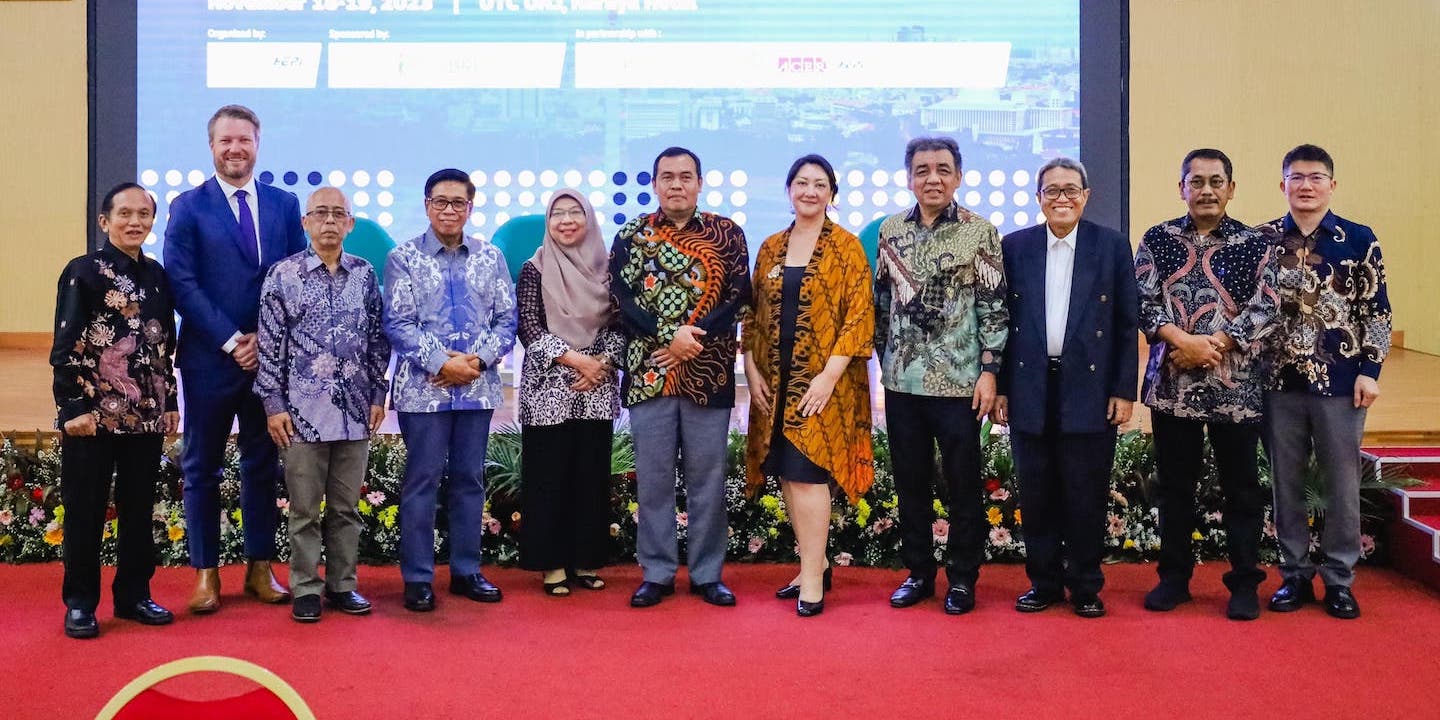
Enhancing students’ achievement through the assessment of learning progression
Feature 13 Dec 2023 5 minute readACER's approach in progressive achievement identifies students' positions at the beginning of their learning journey and what progress looks like throughout the process.
On 18-19 November 2023, the Indonesian Education Evaluation Association (HEPI) conducted the 3rd International Conference on Educational Research and Evaluation (ICERE) in the premises of the Jakarta State University (UNJ). This event was held in the hope that scholars, educators, educational practitioners, researchers, students and other parties could hold discussions and make useful contributions to overcome the challenges in education during and after the pandemic. Also, to discuss the rationale and implications of the Merdeka Belajar and Kampus Merdeka (Emancipated Learning/Emancipated Campus) policies.
A longstanding partner of HEPI in educational assessment with more than two decades supporting governments in Indonesia with the expertise of research-based knowledge to improve learning, the Australian Council for Educational Research (ACER) Indonesia invited its Director of School Assessment Jarrod Hingston, PhD, from the Melbourne office to be the opening keynote at the event, in a panel session with Bahrul Hayat, PhD, Vice Rector of the Indonesian International Islamic University and former Head of the Centre of Educational Assessment (PUSPENDIK), the Ministry of Education of Indonesia.
Established in Australia 90 years ago as a team of independent researchers, ACER has grown into one of the world's leading educational research organisations, committed to leading system reformation by informing education-related policies and enhancing learning practices through innovative, holistic approaches.
Assessment has long been ACER's strong suit. This conference’s topic perfectly reflects ACER's stance, as ACER’s approach on assessment is based on the learning progression. In his presentation, Dr Hingston explained how ACER uses evidence in their educational measurement, to identify what progress looks like from the very beginning, and throughout each student’s learning journey.
ACER’s diagnostic assessment isn’t based on grade or age level, but at a proficiency level, which is broader and will help enable teachers to know where their students' learning is at, against the curriculum standard (grade or age level), what they have mastered and in what areas they're being left behind.
‘We believe in the power of enabling students to see their progress, as it is so often that students only get told what they answered incorrectly on a test; the focus is almost always on the deficit and not the success,’ Dr Hingston said. ‘Not just in school but also in your job, in life, you like to feel like you’re actually progressing, that you’re improving. And it is a very simple humanistic notion to be able to show to our students the things they need to focus on. It is a real take on advocating students' agency, where students get more involvement, and able to have their say in decision-making about their learning.’
Director of ACER Indonesia, Mariam Kartikatresni, expressed her hope that the diagnostic assessment tools introduced by ACER would contribute to the success of learning achievement for each child. ‘Our diagnostic assessment can help teachers to identify children's level of achievement so that they have enough information to carry out differentiated learning,’ said Ms Kartikatresni.
Dr Hayat spoke in his session about how learning progression is the future of educational assessment, how this approach will enable us to implement the commendation of teaching at the right level. In his broad presentation on Trends in Educational Assessment, Dr Hayat also mentioned student-centric assessment, multi-source, and multi-format assessment as some of a few innovative approaches that teachers and policymakers need to acknowledge to gain a rich insight into their students’ learning.
'Try to have really good assessment instead of more assessment, to use data better and to understand it,' Dr Hayat said in closing.
The Chairman of the 3rd ICERE committee, Prof Awaluddin Tjalla, who also held the position as the Head of HEPI UKD Jabodetabek and the coordinator of the Research and Educational Evaluation Doctoral Program of UNJ, said that this activity is expected to contribute to answering the challenges of post-pandemic education 5.0.
Prof Tjalla also added that papers from the selected participants in this 3rd ICERE will be published in the Scopus-indexed, Indonesian Journal of Educational Measurement and Psychology (JP3I).
He mentioned how the expected output from the 3rd ICERE scientific conference in 2023 includes the dissemination of research results from various countries in the fields of measurement, evaluation, educational research, and the learning environment, as well as scientific publications in national journals and international proceedings.